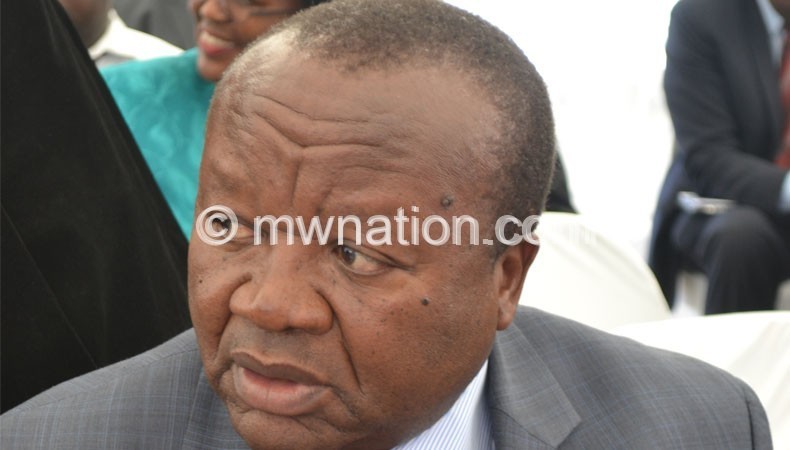‘We are banking on patriotism’
Corruption, bureaucracy and red tape have been cited as major causes of the collapse of public service delivery. But as Chief Secretary GEORGE MKONDIWA explains in this interview with FATSANI GUNYA, all that is about to change. EXCERPTS:
Why do you think a ‘business as usual’ attitude will soon end in the public service?
There are several issues we are banking this on; but the main one should be the spirit of patriotism we are trying to instil, not only among the public service, but also across all stakeholders. Of course, this is all tied to the public service reforms. Just a week ago, Malawi launched what is being called as the Community of Practice on Managing for Development Results.

What is it all about?
The Community of Practice is a continental-wide initiative. It started in 2007 with 3 000 leaders in Africa meeting and agreeing that our biggest common challenge is results. We have a long list of programmes but such initiatives are not yielding positive improvements of the lives of our people on the continent. So that team approached the African Development Bank (AfDB) who provided resources and then came up with what we call the African Community for Practice (AfriK4P). It is this initiative that has been decentralised to all members on the continent. Managing for Development Results (MfDR) is basically a management strategy that focuses on using performance information to improve decision-making. It involves using practical tools for strategic planning, risk management, progress monitoring and outcome evaluation.
What was lacking before that you think this initiative would enhance in the country?
This initiative in itself will enhance awareness of the need for results to be respected. In other words, you would have programmes and then you would say, well, “there it is; we are implementing this” but then you do not concentrate on the measurement of the results. Now people will be looking at and for results. We owe them. For instance, you visit the Immigration Department in search for a passport. Your result is to get a passport but you want to get it in a timely manner. In such a scenario, you have a service charter on the entrance to the department saying well, you will get your passport in a day or two if you pay K60 000 or K80 000. What it means is that you will make sure that when you pay that amount, you get the passport within the exact agreed period.
Is this another tool of ensuring that government remains accountable to donors and not the people it claims to serve on the ground?
I have to be clear on one thing: The donors come to help Malawi. And if they bring, say K50, what they ask for is for us to prove to them that we have used that K50 for the activity we had agreed. But the donors are not supposed to come and prescribe what they want us to do [simply because they have pumped in some funds]. They are supposed to come here and assist the development programmes of the country. So, once we have a programme and a donor comes, their significance in that role is just to make sure that the resources they have put therein are properly accounted for and if we give them a return that would be it. But the bulk of ensuring quality public service delivery rests on the public itself. In addition, government is very much conscious of the main duty it has on its citizenship; that is to deliver goods and services to its citizens in an efficient, cost-effective and sustainable manner. It also has to be noted that government has been implementing a number of initiatives and reforming some in order to improve service delivery and prudent resource management.
What does it mean to Malawi in terms of development?
The thing is here in Malawi, just like elsewhere in the world, the tool is vital for effective service delivery. It assists in effective management of both local and external development resources to attain development outcomes. The resources are intended to benefit the people of Malawi and so the government, and particularly the Ministry of Finance, Economic Planning and Development, has the duty to ensure efficient and effective use of these resources.
This involves embarking on a number of crosscutting reforms and strengthening of initiatives that will lead to the desired outcomes that the government intends to achieve in collaboration with development partners. All these planned outcomes are a reflection of the policies reflected in the Malawi Growth and Development Strategy (MGDS), which is a localisation of the internationally agreed to development agenda.
Currently, government is in the process of preparing the next overarching development agenda, the third MGDS3 which will be a localisation of the recently approved overachieving international development agenda, the Sustainable Development Goals (SDGs). As such, the Malawi Community of Practice will essentially ensure that all our programmes, plans and projects have a positive bearing on the lives of Malawians.
And it is in that regard that things like the Malawi Public Reform Programme and various initiatives that government is championing, including the downsizing the number of ministries, for instance; all these things are positive strides towards improving efficiency in public service delivery to the Malawi population.




